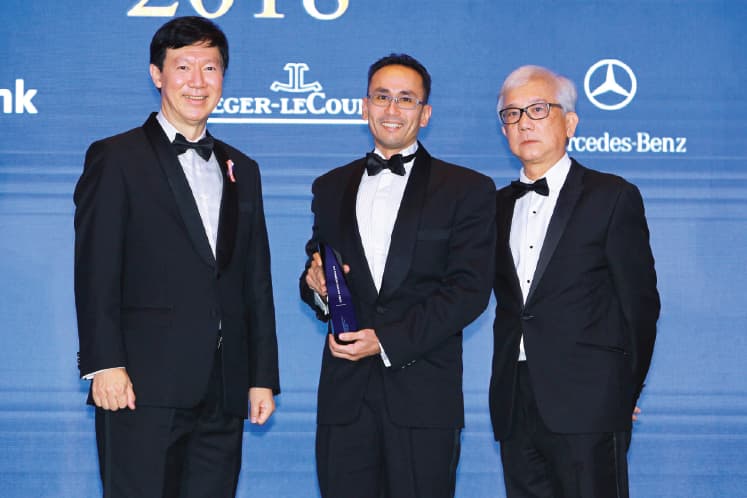
This article first appeared in The Edge Malaysia Weekly on December 17, 2018 - December 23, 2018
Through prudent cost optimisation and diversifying its revenue stream, Astro Malaysia Holdings Bhd has managed to achieve phenomenal growth over the past three fiscal years.
The country’s largest pay-TV operator achieved profit after tax (PAT) of RM623.7 million for its financial year ended Jan 31, 2017 (FY2017), up from RM615.3 million in FY2016, RM519.4 million in FY2015 and RM448 million in FY2014.
This translates to a three-year compound annual growth rate of 11.7% — bagging it The Edge-Billion Ringgit Club award for the highest growth in PAT over three years in the Telecommunications and Media sector.
That is no small feat for a company that is not just facing competition from new legitimate rivals but also being hit by piracy — its biggest headache, given the widespread mentality among many of getting free content over the Internet.
Moving forward, Astro is striving to find a niche in the market. It is positioning itself to be ahead of the game by being a technology-driven group, capitalising on opportunities brought about by the digital, online and mobile space while playing to its strengths and staying true to its core as a consumer-first company.
In FY2018, Astro’s earnings continued to grow by nearly 24% to RM764 million despite revenue dipping 1.5% year on year to RM5.53 billion.
Outgoing CEO Datuk Rohana Rozhan, in the group’s FY2018 annual report, attributed the improved profitability to an increasingly diversified revenue base, underpinned by relentless cost optimisation resulting from digitisation initiatives and optimisation of content spends, as well as a favourable climate for foreign exchange.
Concerns about digital disruption have put Astro’s share price under pressure. The stock fell 40% from RM2.613 on June 30, 2015, to RM1.564 at end-June 2018. The selldown, which some investment analysts deemed overdone, has made Astro’s dividend yield attractive at over 7%.
Citigroup analyst Hussaini Saifee, in a Nov 15 report, said that investors should buy Astro’s shares after the 57% slump in its share price this year as valuations, cash flows and dividend yield outweigh negative elements such as stiff competition.
Rohana opines that a fundamental challenge for media providers in switching from traditional to digital media is the lack of clarity in viable business models, given the heavy focus on advertising-funded models and a gradual but distinct shift in consumer willingness to pay.
Astro is approaching this problem in Malaysia by being prudent about capital management and pursuing growth strategies, while using the group’s core strengths to defend its position.
Meanwhile, Rohana says Astro is building a regional presence by investing in Nusantara digital communities, content and ecosystems through win-win collaborations and partnerships.
“Digital does not only affect business models, but also the value chain. For Astro, major shifts are to our customer outreach and marketing activities, as well as our product offerings, and to a lesser extent, supply chains and sales channels,” she says.
According to Rohana, efficiencies are being gained, namely through customer online self-serve, use of digital sales channels and migrating new customers to customer-owned equipment such as smart TVs to save on capital expenditure on new set-top boxes (STBs) .
“In parallel, more of our content is moving to online and on-demand through connected STBs, apps and web portals to keep up with changing customer preferences,” she said.
As a 22-year old company, Rohana said Astro has a uniquely strong position given its established asset base in brand, customer reach and engagement, long-standing transactional relationships, talent and content, to form new businesses for a bigger slice of the expanding digital economy pie.
In FY2018, the group scaled up its reach across not only households but also individuals, through its over-the-top media services , commerce and radio propositions, she added.
“We also ramped up on our regional content capabilities and digitalised our business, but more importantly upskilled our talent to ensure Astro continues to be fit-for-purpose in the digital era.”
Astro deserves a pat on the back for how far it has come. The challenges that lie ahead means it needs to stay on top of its game.
Save by subscribing to us for your print and/or digital copy.
P/S: The Edge is also available on Apple's AppStore and Androids' Google Play.